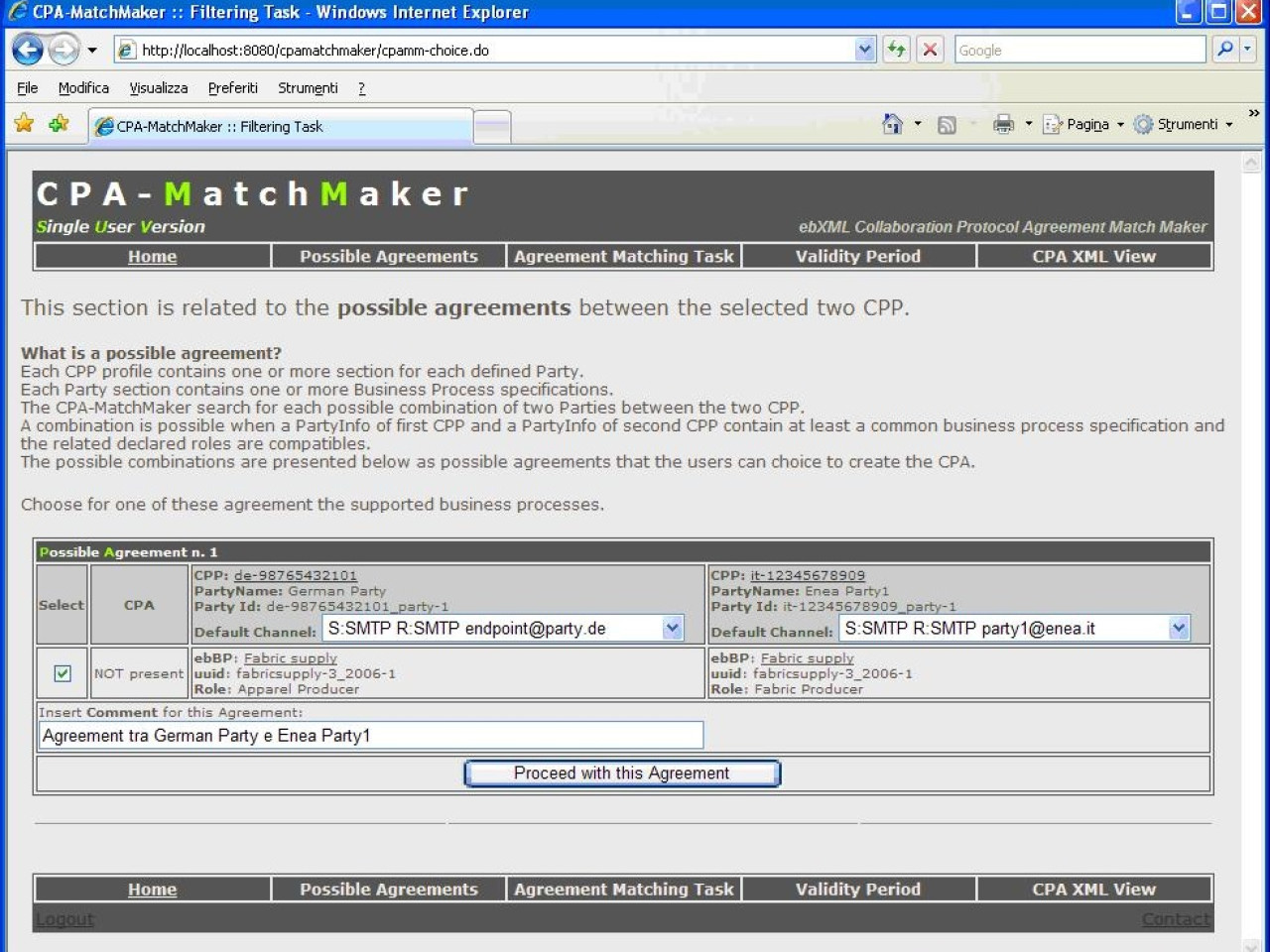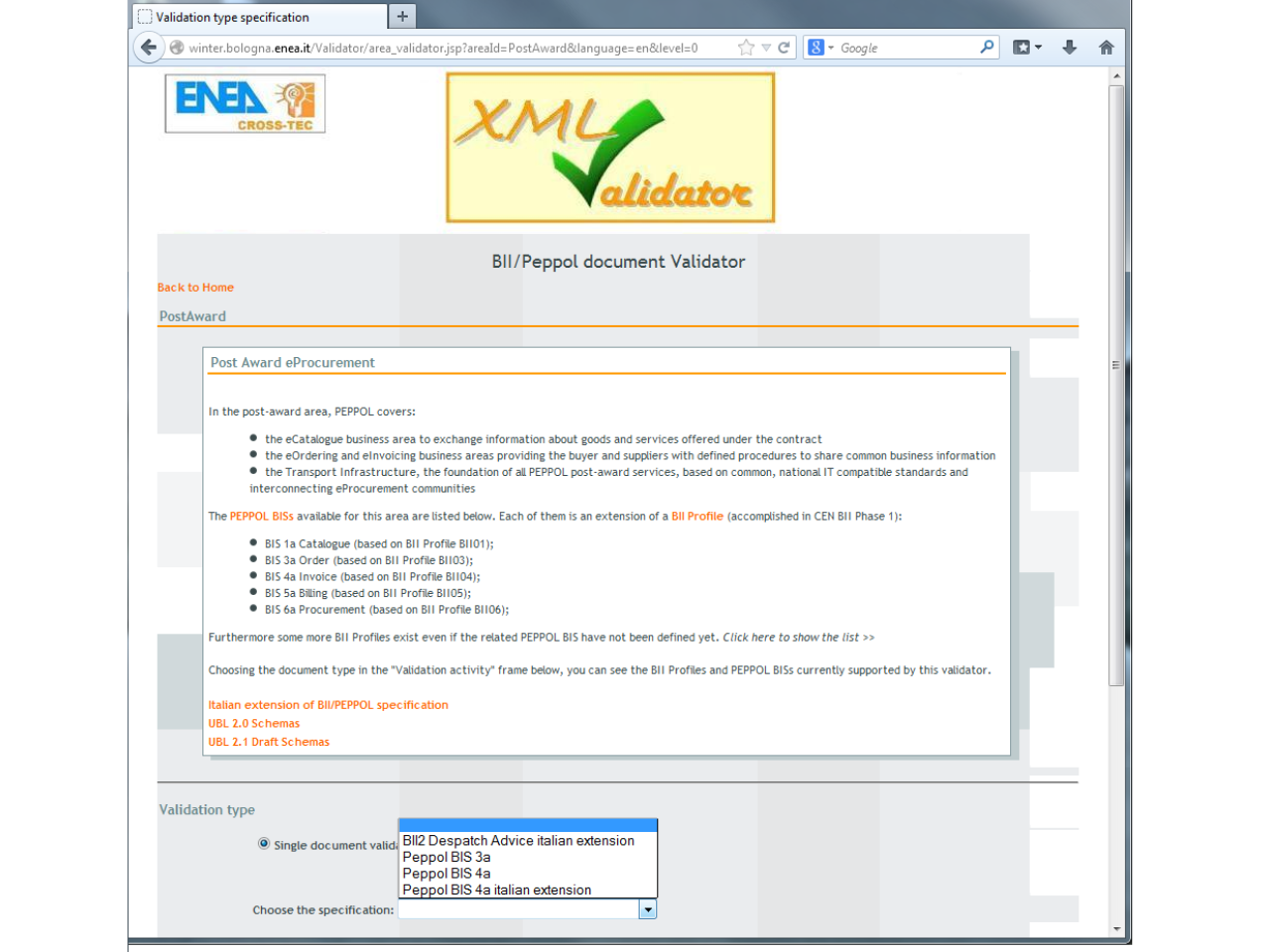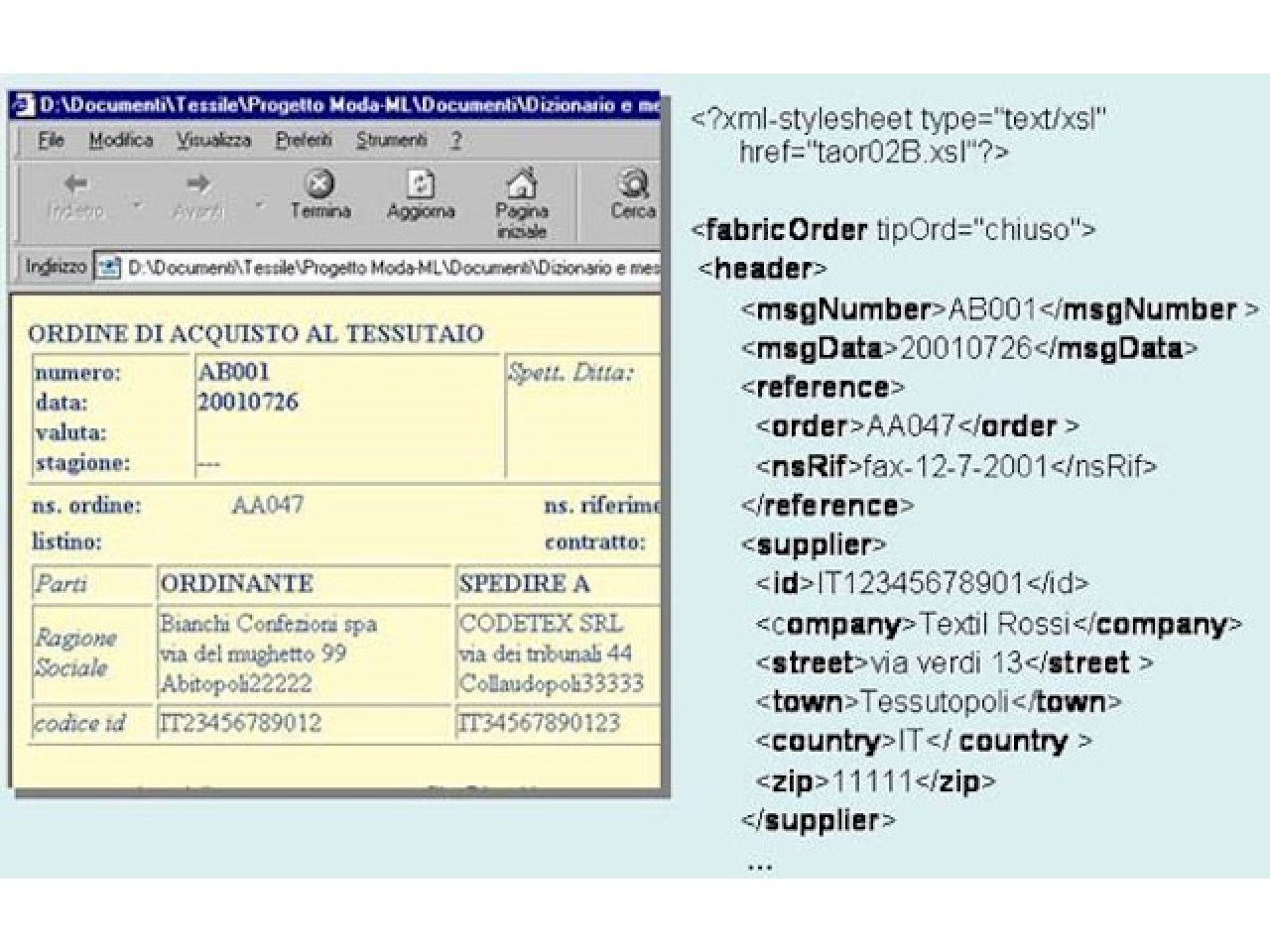The service and instruments offered seek to support ICT and manufacturing companies in solving interoperability issues connected to eBusiness and the use of international standards in collaborations among firms and between firms and Public Administration. The interoperability issue arises from the growing need for integration of data flows among the various organisations contributing to developing a product, and to do so with the minimum effort and risk of errors. The spread of the Internet and XML language has been a huge step forward compared to the EDI technology of the 90's, however it has highlighted issues of correct semantic modelling in extremely parcellated application scenarios. The instruments provided by the laboratory foster the use of data exchange standards and - jointly with company support actions – lead to a cost reduction of the IT solutions for enterprise networks.
 CPA-MatchMaker, a web application supporting the creation/modification of collaboration agreements
CPA-MatchMaker, a web application supporting the creation/modification of collaboration agreements
Traditionally, eBusiness standards are viewed as a cost: the effort required to obtain and interpret the documentation and move to implementation has discouraged embracing them up to now. Without a methodology and test instruments - especially when several partners are involved - the time required for development is much longer than expected, all the more so the more complex and sophisticated is the collaboration. This often leads to giving up using standards and decreasing the quality of inter-company collaborations.
The possible application scenarios of these methodologies and instruments are supply chains (suppliers, subcontractors and customers) and processes between companies and public administrations (e.g. eProcurement); among future scenarios are communications among systems in Smart Cities and Smart Energy Grids. The targets may belong to two types: a) IT solutions suppliers; b) enterprises and public administrations.
 XML Validator, a web application for interoperability tests
XML Validator, a web application for interoperability tests
The eProcurement platform of the Emilia Romagna Region
The methodologies and tools put forth have been used to support the regional eProcurement of the Emilia-Romagna Region in collaboration with Intercent-ER (Regional agency for the development of digital markets). Experimentation was carried out concerning the production and exchange of electronic Invoices, based on the results of the European Peppol project, aimed at laying the foundations for complete automation of the regional eProcurement cycle. In practice, User Profiles were developed for the European PEPPOL specifications, to transpose the national requirements in the expected transactions, in order to assure the presence and correct interpretation of the required data. Subsequently, a test plan was set up and the Validator was made available to support IT solution providers in adapting the Region's suppliers' systems to the scenarios in question. The pilot application, as agreed with Interent-ER, targeted the regional health services supplies. The eProcurement flows between the health sector firms and the regional platform started by the end of 2013, with the disappearance of relevant paper flows, and reduction of times, costs and errors due to manual data entry.
Intercent-ER Reggio Emilia Local Health Services Sant’Anna Hospital of Reggio-Emilia GPSC S.r.l. Finmatica Group
The experimentation has paved the way for automating the entire regional procurement cycle, therefore the potential user base is massive. Furthermore, the user profile implemented within the experimentation represents the European standard localisation for Italy, has a broad value and is available for future applications.
 An order in XML format displayed on the web browser
An order in XML format displayed on the web browser

